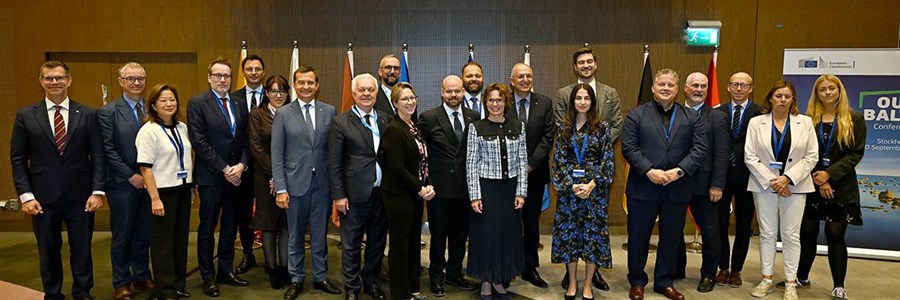Europêche calls for an urgent and binding recovery plan for the Baltic Sea

Yesterday, the European Commission hosted the Our Baltic Ministerial Conference in Stockholm to discuss the future of the Baltic Sea, with the participation of ministers from the Baltic region and the EU Commissioner for Fisheries and Oceans, Costas Kadis. This event marked the first initiative under the Ocean Pact on fisheries matters. In this context, Europêche urges the European Commission, Member States and the European Parliament to swiftly agree on a binding recovery plan for the Baltic Sea.
“There is no need for more conferences or promises. What we urgently need is a binding action plan to address the multiple factors that have shocked the marine environment in the Baltic Sea,” stressed Kenn Skau Fischer, CEO of the Danish Fishers PO.
Regime shift in the Baltic Sea
Europêche stresses that no Member State can address the Baltic crisis alone; a coordinated, cross-border approach is essential. The Baltic Sea is facing unprecedented pressures from nutrient emissions, chemical pollution, expanding offshore energy, climate change, and the uncontrolled growth of predator populations such as seals and cormorants. These factors are driving a fundamental ecosystem regime shift and continue to impede the recovery of fish stocks, despite strict fishing restrictions already in place.
“One country cannot shoulder this challenge on its own. All parties must pull together. We call on ministers to stand ready, work constructively with the Commission and find workable solutions for the future of the Baltic and our fishers,” said Kenn Skau Fischer.
Solution beyond fisheries management
The fishing sector has made an unprecedented reduction in catches designed to minimise pressure on fish stocks and allow fish populations to thrive. Yet, recovery remains blocked by environmental pressures beyond fisheries. Europêche insists the Common Fisheries Policy (CFP) must be revised to allow measures tackling broader ecological threats. “One thing is clear: if nothing is done to address the above-described stressors, fish stocks will not recover, regardless of catch limits,” warned Kenn Skau Fischer.
In this regard, challenges such as climate change require long-term solutions, while eutrophication and pollution demand medium-term action. Others, like excessive predation from seals and cormorants, can be addressed more immediately.
Inclusive dialogue with fishers
Despite the importance of today’s conference, discussions remained largely at the institutional level. “It is regrettable that those who know the Baltic best – the fishers – were not given broader representation at the discussion panels to contribute their views. Without their presence and involvement, there is a real risk this becomes yet another academic exercise,” stated Daniel Voces, Managing Director of Europêche.
Europêche will continue to engage constructively and will meet Commissioner Kadis on 3 October to exchange views on the Baltic’s future.
ENDS
Read more: Our Baltic Ministerial Conference – European Commission
Press Contact:
Margot Angibaud, Senior Policy Advisor of Europêche
Email: margot.angibaud@europeche.org │ Phone: +32 494 19 03 96
Sources: Europeche
Attachments:
Tags: Baltic conference, recovery plan, baltic sea, seals, cormorants, Climate change, fishers